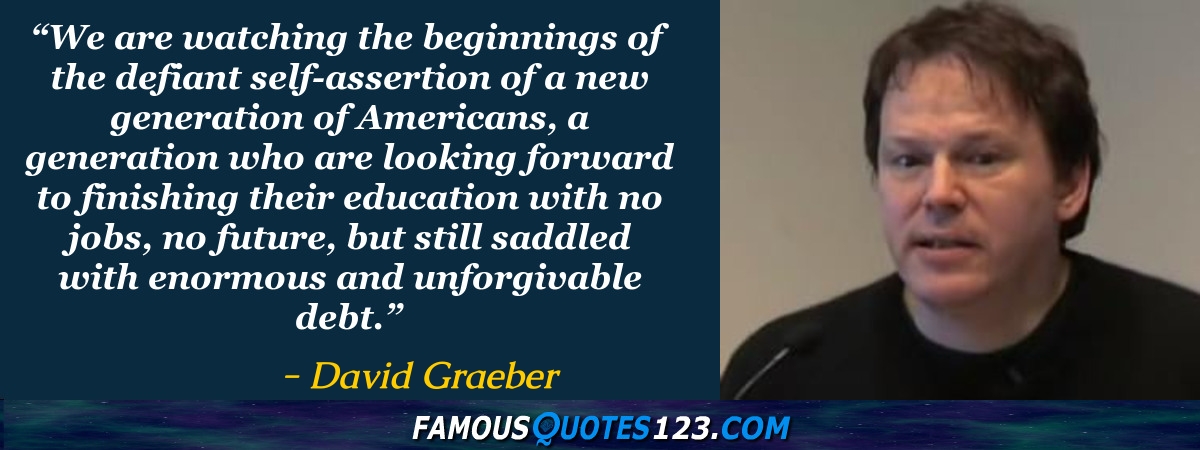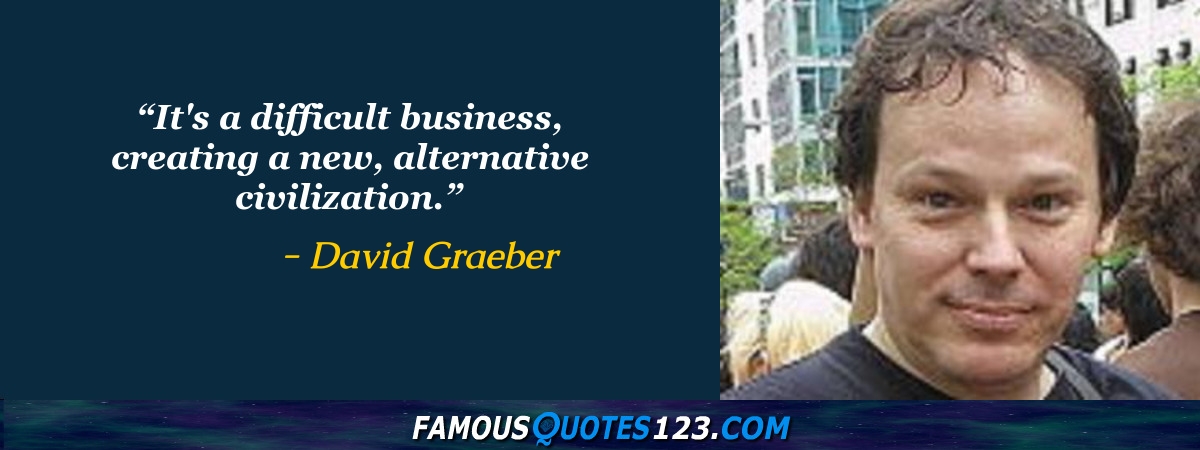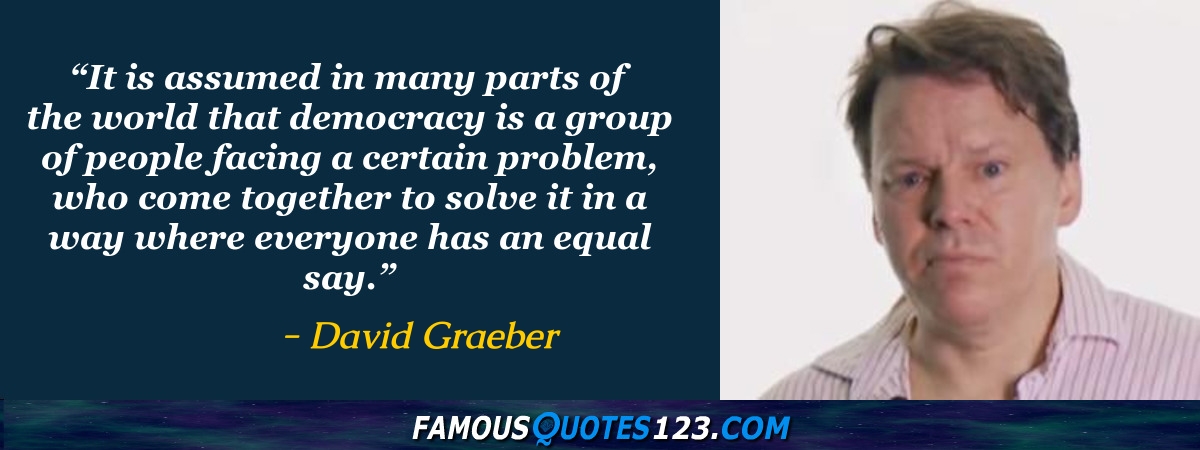David Graeber Quotes


It's true that most American citizens think of themselves as living in a democratic country. But when was the last time that any Americans actually sat down and came to a collective decision? Maybe if they are ordering pizzas, but basically never.
Consensus isn't just about agreement. It's about changing things around: You get a proposal, you work something out, people foresee problems, you do creative synthesis. At the end of it, you come up with something that everyone thinks is okay. Most people like it, and nobody hates it.

We are watching the beginnings of the defiant self-assertion of a new generation of Americans, a generation who are looking forward to finishing their education with no jobs, no future, but still saddled with enormous and unforgivable debt.

It's a difficult business, creating a new, alternative civilization.

It is assumed in many parts of the world that democracy is a group of people facing a certain problem, who come together to solve it in a way where everyone has an equal say.
Money has always been a particular problem for revolutionaries and anti-capitalists. What will money look like 'after the revolution'? How will it function? Will it exist at all? It's hard to answer the question if you don't know what money actually is. Proposing to eliminate it entirely seems utopian and naive.
It affects every aspect of our lives, is often said to be the root of all evil, and the analysis of the world that it makes possible - what we call 'the economy' - is so important to us that economists have become the high priests of our society. Yet, oddly, there is absolutely no consensus among economists about what money really is.
If you look at history, there seems to be a regular pattern: the country with the most powerful military also happens to be the one with the world trade currency. That gives them an enormous economic advantage, which causes goods to flow into their country.